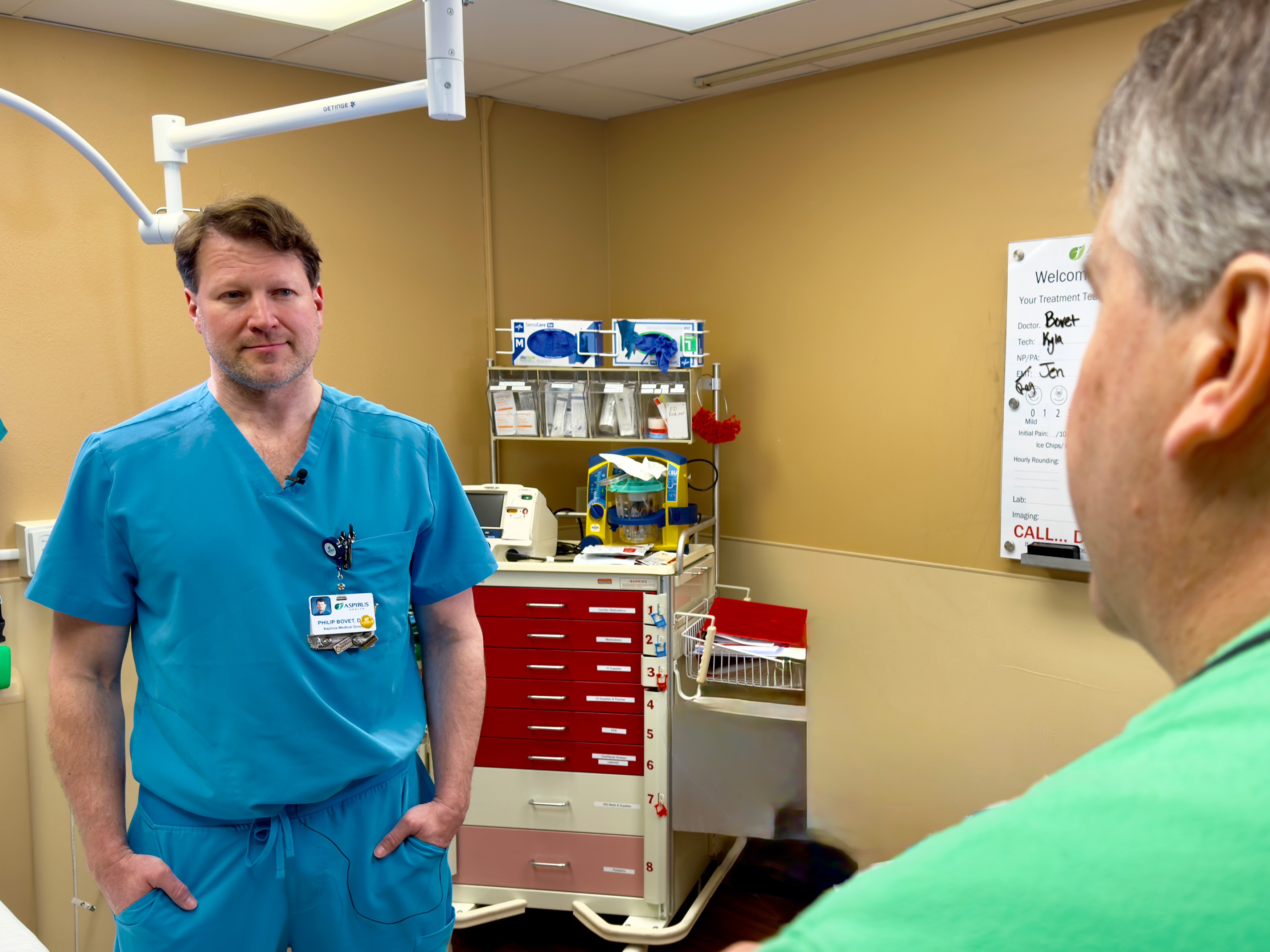Aspirus Provides Access to Emergency Stroke Treatment Through Telestroke Services
Improving outcomes through faster stroke intervention
5/12/2025

Dr. Philip Bovet, Aspirus Emergency Medicine Physician
Stroke
is a leading cause of disability and death in the United States, and for
rural communities, timely treatment can be a significant challenge. During
Stroke Awareness Month, Aspirus Health is highlighting how telestroke
technology is helping bridge that gap and bring expert-level care to patients
closer to home.
Telestroke
technology connects emergency teams with neurologists through secure video
conferencing, allowing stroke patients to be evaluated and treated faster.
“Telestroke gives us
access to a neurologist in the Emergency Department when we want to discuss the
patient's condition,” said Dr. Philip
Bovet, Emergency Medicine Physician at Aspirus Health. “We can have their
consultation right away, which makes treatment more quick and effective.”
When a stroke is
caused by a blood clot, known as an ischemic stroke, medications like TNK (a
clot-busting drug) can be used to dissolve the clot and restore blood flow. But
the effectiveness of this medication depends heavily on how quickly it’s
administered.
“Every minute that
goes by is 1.9 million neurons that we lose,” said Dr. Bovet. “Time is brain,
so every minute counts.”
Telestroke enables
emergency teams to act fast, even during busy shifts, and can reduce the need
to transfer patients to larger facilities.
“It’s been very
helpful knowing that when we have a stroke patient come in, we have the
security of a neurologist who’s available on the screen right away,” he said.
“It helps put me at ease knowing I have a specialist taking care of the
patient, too.”
Dr. Bovet, who grew
up in Antigo, Wisconsin said he’s proud that advanced stroke care is available
in the region he calls home. “Knowing that technology like this is available
here for family and friends is a great asset to have in our community.”
Know the Signs. Act
Fast.
Stroke symptoms can
include sudden numbness, confusion, trouble speaking, vision problems,
dizziness, or severe headache. If you or someone else is experiencing these
signs, call 911 immediately.
For more information
about stroke care at Aspirus, visit aspirus.org/stroke-care.

Back to all Posts